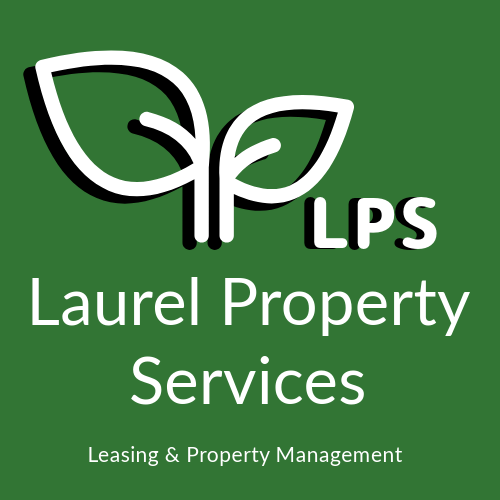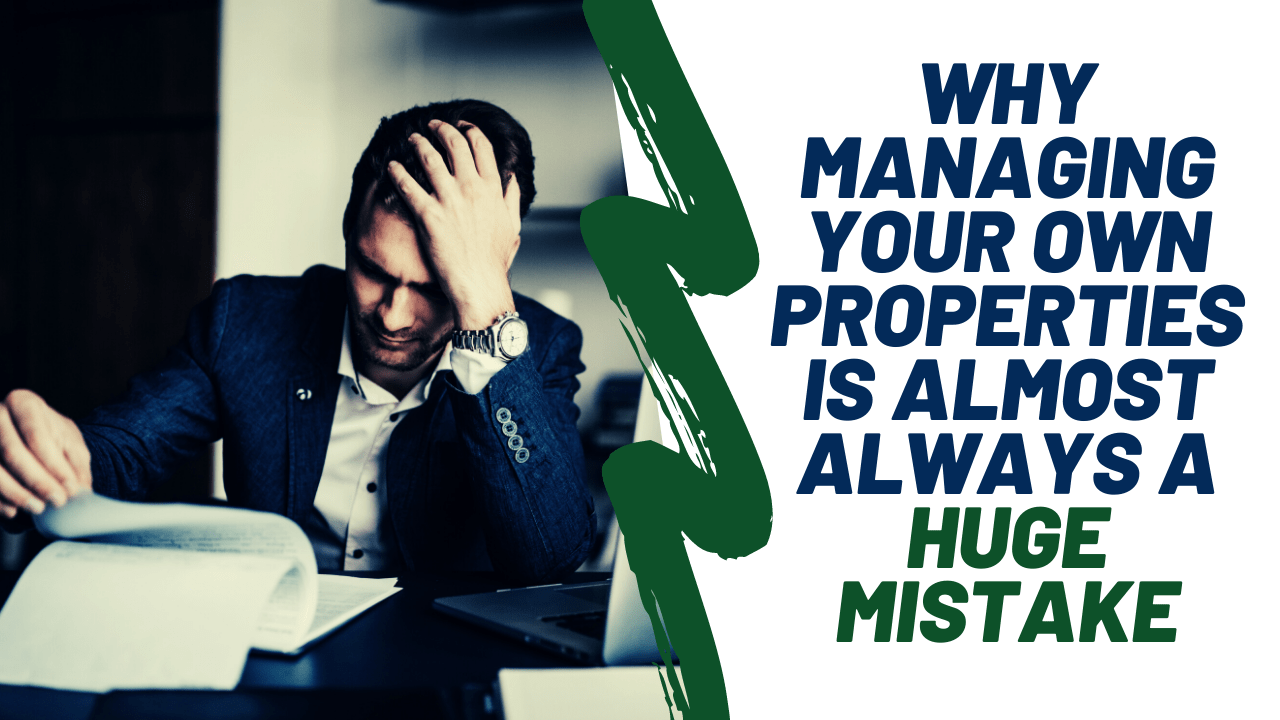Self-managing your own rental property might seem like it’s easy enough. All you really have to do is find a tenant and collect rent, right?
Not exactly.
Managing your own properties is almost always a huge mistake. That’s because it leads to a lot of easy mistakes that DIY landlords are quick to make. Those mistakes are often expensive. They can put you at risk for lawsuits, claims, and disputes. They can put your property at risk for damage and deterioration.
Professional property management in Golden and throughout Colorado is well worth the money you’ll spend on a management fee. Many of the landlords we’ve talked to have found that they actually spend less and earn more once they decide to work with a management company.
Under some unique circumstances, self-management can work. But those circumstances are rare and in our experience, it’s almost always better to hire a professional. Here are some of the reasons why managing your own property leads to major mistakes.
Golden, CO Rental Values Can be Difficult
If you don’t know the local rental market on a professional level, you’re probably losing money.
A lot of self-managing landlords either underprice their home or overprice it. When they set the rental rate too low, it’s hard to make any real money. It’s also hard to bring that rental value up to market levels.
When the home is priced too high, the vacancy is much longer. You eventually attract only tenants who are underqualified and have been rejected elsewhere.
Not only do self-managing landlords have trouble setting the right rental value, they typically forget to raise the rent. Often, they have the same tenant in a unit for many years and they neglect to increase their rent because they want to keep things as easy as possible. Landlords are worried that if a tenant is paying more rent, they’re going to be more likely to call for maintenance. Maybe they’ll leave and find somewhere else to live.
Don’t worry about those things. If your tenant isn’t calling for maintenance, that doesn’t necessarily mean there’s no maintenance needed. They’re probably not calling because they don’t want their rent to go up. It’s a terrible cycle to fall into, and one that professional property managers can easily avoid.
Neglecting Rental Property Inspections
Another reason not to manage your own property is that you need an objective professional to examine and document the condition of your investment. Routine rental inspections are needed.
If you’re managing on your own, you might hesitate to go inside the property. But you don’t have to worry about bothering your tenant or invading their privacy. There’s no need to go to the property every month. However, you’ll want to get inside once a year at least to make sure the tenant is taking care of the property. Look for deferred or unreported maintenance and make sure your resident is respecting the terms of the lease agreement.
A good management company will conduct inspections during move-in, after move-out, and at least once a year to ensure the property is in good condition.
Golden Tenant Screening and Resident Relationships
If you manage your own property, will you know how to find a good tenant?
A lot of landlords collect the first month’s rent and hand over the keys without getting an application, running a background check, or pulling a credit report. This is a huge risk. You have to know who is living in your property. You don’t know who the tenant is or where they work if you don’t do a thorough screening.
Sometimes, self-managing landlords don’t even have a lease. This is another huge mistake, and one that would never happen if you were working with a property management company. A lease is necessary to protect all parties and to give direction about responsibilities and expectations.
Tenant relationships can be challenging for self-managing landlords to navigate. We’ve found that either the relationship is adversarial and difficult or the relationship is too close and the landlord and tenant are chummy to the point that it’s impossible to enforce the lease agreement or hold the tenant accountable.
Maybe there’s a tenant who you like and you don’t charge a late fee when they pay late. This is a recipe for disaster. You’re especially likely to find yourself in legal trouble if you don’t make the same exceptions for other tenants. All tenants talk to one another, especially in multi-family properties. If one tenant hears that a neighbor wasn’t charged a late fee but you did charge that person a late fee, you’re looking at a discrimination issue or a fair housing issue.
Don’t do favors for one tenant unless you’re willing to do the same thing for everyone.
Don’t let the tenants make their own repairs. If your tenant calls to report a leaking toilet and you ask them to fix it themselves and deduct the amount from next month’s rent, you’re setting a bad precedent. That tenant will start calling with a new repair every month, just looking to knock money off the rent that’s owed. Tenants may also do repairs incorrectly. That’s only going to cause further repair issues.
Tenant relationships don’t have to be difficult. If you’re working with a property manager, you already have a buffer between you and your residents. You know a professional is enforcing your lease, collecting rent, and handling all tenant communications. There are no conflicts for you to deal with.
Eviction Issues and Legal Challenges
As a self-managing landlord, you might take it very personally when rent isn’t paid.
This doesn’t mean you can take matters into your own hands while trying to evict your resident. You cannot disconnect the utilities or refuse entry to the home when a tenant is not paying rent. You might get upset because the tenant hasn’t paid in several months, so you disconnect the water or change the locks. That’s a lawsuit that’s sure to happen, and it’s one you’re going to lose.
The proper way to evict a tenant is through the legal proceedings in the court system. You can get control of your property back when you follow proper eviction procedures.
You need to know the difference between a pet and a service or a support animal. You cannot tell a tenant with a service dog that pets aren’t allowed in your property. You cannot try to charge pet rent or a pet fee for a tenant who moves in with an emotional support animal.
Understanding the fair housing laws, eviction laws, and other legal requirements of renting out a property can be a challenge. Property managers stay up to date on these things from year to year. You won’t have to worry about breaking a law unintentionally.
Collecting, Holding, and Returning Security Deposits
 Security deposit laws are strict, and you have to make sure you’re following all of Colorado’s laws as they apply to the way you collect and return a deposit.
Security deposit laws are strict, and you have to make sure you’re following all of Colorado’s laws as they apply to the way you collect and return a deposit.
We know some landlords don’t collect a security deposit at all. That’s a huge mistake. Some landlords who manage their own properties have also used the security deposit as the tenant’s last month of rent if they’re leaving. Also a mistake. When your tenant moves out, you have to process the security deposit according to the law. You can’t simply not process it because you used it for rent.
Without a security deposit, you won’t be able to make repairs after the tenant moves out. Don’t use the security deposit when rent is owed during the lease term and don’t waive the requirement that a tenant pays the security deposit.
Make sure you know how to return the tenant’s deposit at the end of the lease term. In Colorado, you have one month from the tenant’s departure to return the deposit unless your lease gives you more time. Self-managing landlords may not understand what can be deducted from a deposit and what cannot be deducted. Normal wear and tear, for example, is your responsibility. You cannot use the tenant’s security deposit to pay for those tiny holes in the walls from where pictures were hung. You have to know what damage looks like, and you have to document it.
As you can see, it’s easy and common to make mistakes when you’re managing your own property. If you’re thinking about self-management, make sure you have a lot of time to focus on the needs of your tenants and your property. Make sure you understand the requirements of being a landlord, and put together a strong set of policies and procedures.
Your best bet is to work with a Golden, Colorado property management team. When your home is professionally managed, there’s less risk. You know you have an experienced and professional team that is ready to tackle any challenge and make sure you have a great rental experience. You are likely to find that those property management fees ultimate pay for themselves. They’re also tax deductible!
If you’d like to hear more, please contact us at Laurel Property Services, Inc. In addition to providing property management in Golden, we also serve Wheatridge, Morrison, Lakewood, Arvada, and Genesee, CO.



